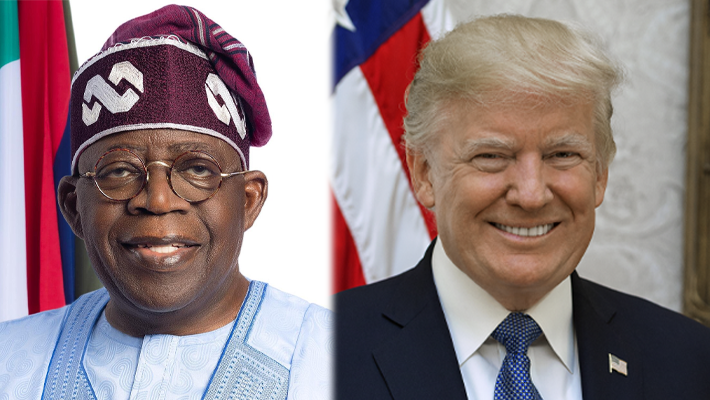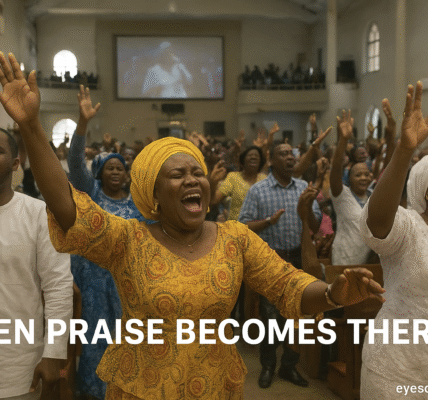MURIC Accuses CAN of Betrayal Over Trump’s Decision to Redesignate Nigeria on Religious Persecution List
The Muslim Rights Concern (MURIC) has accused the Christian Association of Nigeria (CAN) of betrayal following the decision by former United States President Donald Trump to redesignate Nigeria as a “Country of Particular Concern” (CPC) over alleged persecution of Christians.
The Islamic rights group made the allegation in a statement issued by its Founder and Executive Director, Professor Ishaq Akintola, who criticized what he described as CAN’s role in “damaging Nigeria’s image abroad.” Eyes Of Lagos reports,
MURIC claimed that certain Christian leaders had submitted what it termed “frivolous petitions” to U.S. officials, painting a one-sided picture of religious violence in Nigeria and falsely presenting Christians as the sole victims of terrorism.
Akintola stated, “Despite vehement denial of Christian genocide by the Nigerian government, U.S. President Donald Trump yesterday redesignated Nigeria as a country of particular concern. This action, we believe, was influenced by misleading reports and petitions from within Nigeria’s Christian leadership.”
According to MURIC, the CPC redesignation was a gross misrepresentation of the situation on ground. The group described the move as “unwarranted and unjustified,” adding that Nigeria has consistently made efforts to address insecurity and religious conflict across all faiths.
The statement read, “It will be recalled that certain Christian leaders had written frivolous petitions to the U.S. Congress, claiming that Christians were the only ones being killed by terrorists in Nigeria. Instead of debunking this false and misleading narrative, the Christian Association of Nigeria (CAN) simply amplified it. This is deeply disappointing.”
MURIC expressed its frustration at CAN’s alleged stance, noting that such actions were particularly hurtful given what it described as President Bola Ahmed Tinubu’s generosity toward Christians in terms of political appointments and opportunities.
“CAN’s action is a stab in the back in view of President Tinubu’s preference for Christians in appointments, favours and privileges over and above his Muslim brethren,” MURIC stated. “The President himself confirmed that 62% of all appointments went to Christians. The First Lady, Senator Remi Tinubu, was even more generous to them than Father Christmas. In spite of all that was done for Nigerian Christians by this administration, they still deemed it fit to take Nigeria to the enabler of Gaza genocide.”
Akintola described the situation as “the mother of all betrayals” and accused CAN of undermining national unity through what he termed unnecessary international lobbying. He insisted that the Muslim Rights Concern remained committed to defending Nigeria’s image and promoting peaceful coexistence among citizens.
“President Tinubu does not deserve this. It is the mother of all betrayals, and we denounce those behind the report in the strongest terms,” MURIC declared.
The organization further alleged that the U.S. government’s decision might have been influenced by misinformation supplied by Nigerians seeking political or religious advantage. “While America may be pursuing its own foreign policy interests, the ultimate blame lies with those who fed U.S. authorities with false and divisive narratives,” the group added.
MURIC also defended the Nigerian government’s position that the country does not engage in systematic persecution of Christians or any religious group, arguing that both Christians and Muslims have suffered equally from the activities of insurgents and bandits.
The statement concluded with an appeal to religious leaders to refrain from actions that could jeopardize Nigeria’s international reputation or deepen sectarian divisions. Akintola urged CAN and other religious organizations to embrace dialogue and cooperation in addressing the challenges facing the nation.
As of press time, the Christian Association of Nigeria (CAN) had not responded to MURIC’s allegations. However, analysts note that the controversy reflects long-standing tensions between the two religious groups over how Nigeria is portrayed on the global stage — particularly in matters relating to human rights and religious freedom.
Observers also warn that the renewed inclusion of Nigeria on the CPC list could have diplomatic implications, potentially affecting bilateral relations and foreign aid discussions between Abuja and Washington.
For now, both the Nigerian government and religious bodies are under pressure to clarify their positions and ensure that the nation’s complex security and interfaith challenges are not further politicized in the international arena.








